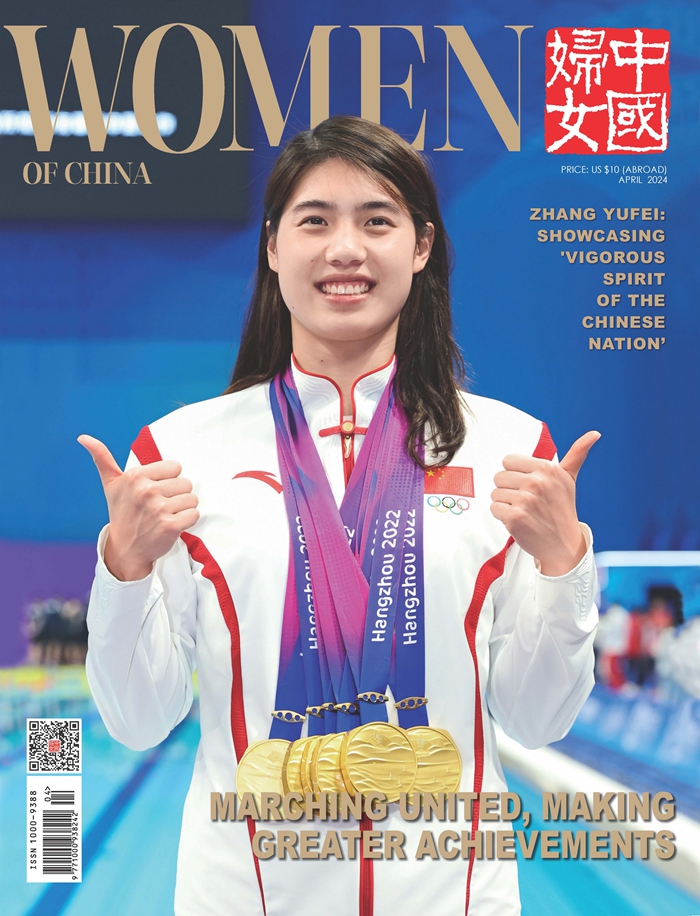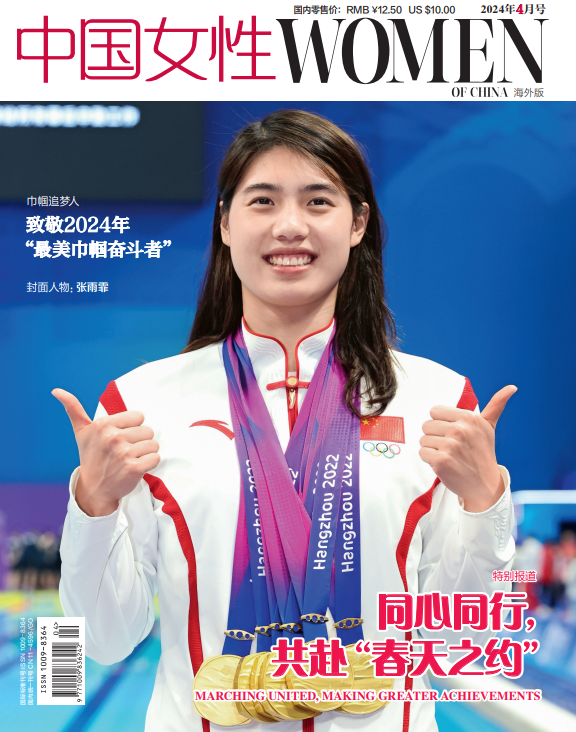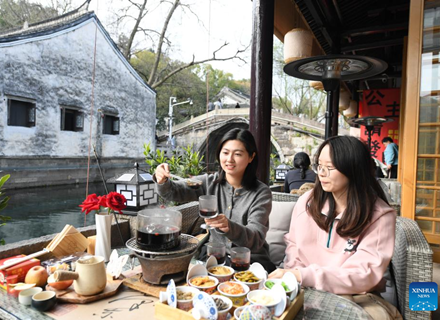Chinese Wisdom in Xi's Words: Seizing Opportunities Like Taking a Boat
BEIJING, April 2 (Xinhua) — "After leaving Suzhou, a traveler would find it hard to get a ride on a boat," Cantonese merchants said hundreds of years ago.
In July 2017, at a meeting celebrating the 20th anniversary of Hong Kong's return to the motherland, Chinese President Xi Jinping cited the maxim to encourage the Hong Kong Special Administrative Region (SAR) to seize opportunities arising from the nation's continuous and rapid development and focus on its own development.
Back in the Ming and Qing dynasties (1368-1911), Cantonese merchants in south China would travel northeastwards all the way to Suzhou, a busy cargo entry on the Grand Canal at that time, to sell goods further to the vast northern market.
One of the experiences they acquired was that hiring a barge to load freight at Suzhou was imperative for the shipping business, for such an opportunity missed was indeed an opportunity lost.
The insightful saying underscores the traits of ancient Cantonese. They were adept at calculating the time, sizing up the situation, and seizing opportunities in a shifting landscape.
Cantonese-speaking people in Hong Kong have similar experiences. In the 1960s, they jumped at the opportunities when developed countries relocated their labor-intensive industries elsewhere. The economy took off as a result. Two decades later, they rode the wave of reform and opening up of China. The city's position as a global financial, trade, and shipping center has gone from strength to strength. After its return in 1997, Hong Kong embraced a new chapter for its development.
In a world undergoing changes unseen in a century and being faced with challenges, the Hong Kong SAR wants a boat laden with opportunities more than ever before.
Ancient Cantonese merchants might have shown them the way out. The Belt and Road Initiative and the Guangdong-Hong Kong-Macao Greater Bay Area development plan fall right at the doorstep of Hong Kong.
(Source: Xinhua)
Please understand that womenofchina.cn,a non-profit, information-communication website, cannot reach every writer before using articles and images. For copyright issues, please contact us by emailing: website@womenofchina.cn. The articles published and opinions expressed on this website represent the opinions of writers and are not necessarily shared by womenofchina.cn.








 WeChat
WeChat Weibo
Weibo 京公网安备 11010102004314号
京公网安备 11010102004314号